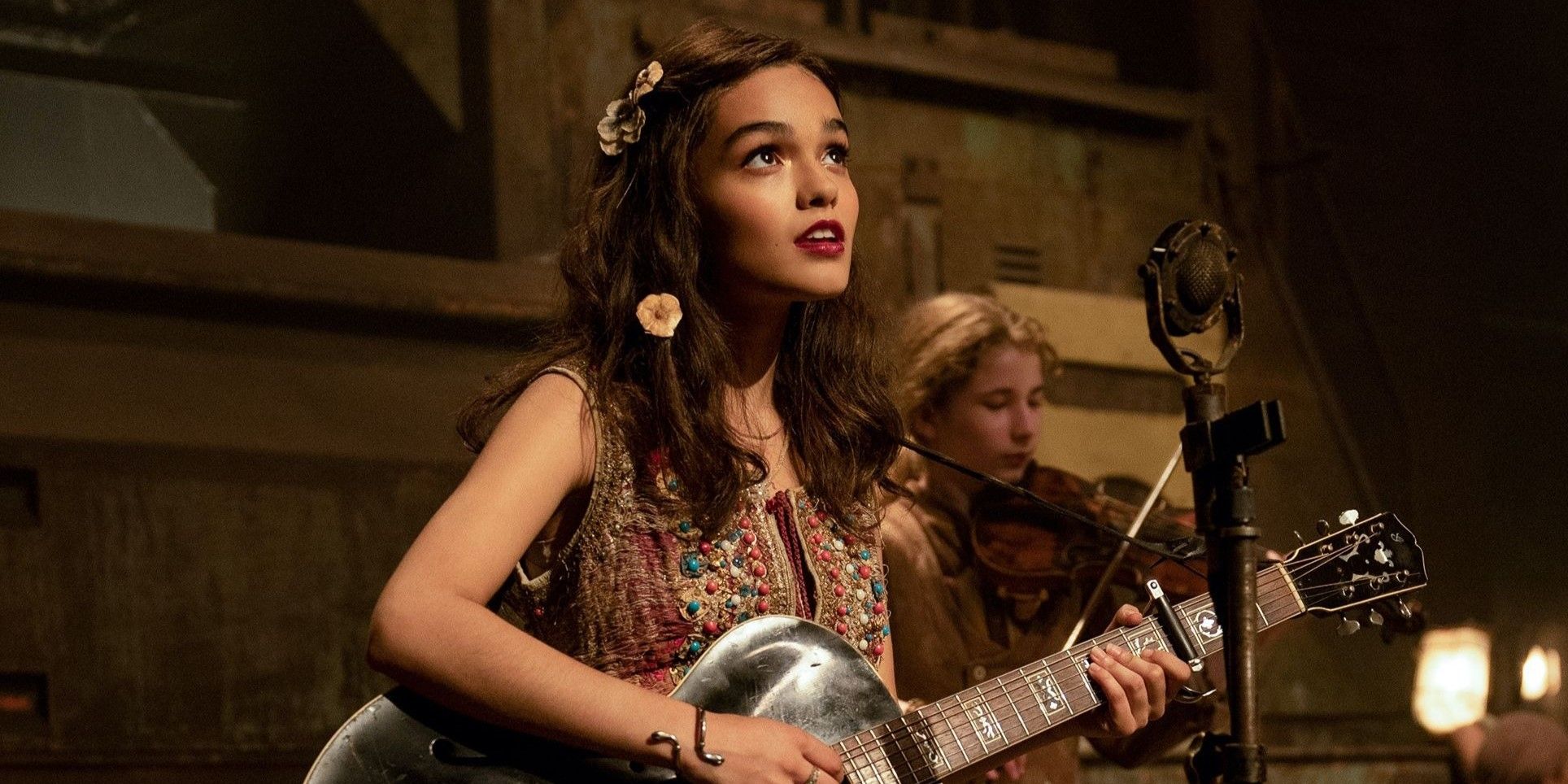
For enthusiasts of “The Hunger Games,” there’s been ample time to ponder over the enigmatic post-apocalyptic realm of Panem, with many aspects remaining veiled in mystery. The background of this nation, as well as the reasons behind the very existence of the central Games, have sparked numerous hypotheses, some of which have recently been validated within the prequel books, “The Ballad of Songbirds and Snakes” and “Sunrise on the Reaping.” The former delved into the early life of the series’ primary antagonist, Coriolanus Snow, while the latter unearthed concealed facts about the second Quarter Quell, the year that Haymitch Abernathy triumphed. It’s also possible that “Sunrise on the Reaping” may have subtly suggested that a wilder fan theory might be closer to reality than initially believed.
In the Sunrise on the Reaping, readers discovered that Haymitch’s Games story had more depth than previously thought in The Hunger Games: Catching Fire novel, surprising even the most dedicated fans. This prequel also shed light on minor characters from the original trilogy, such as Katniss Everdeen’s parents. Although their names are never mentioned by Katniss, we now know her mother’s name is Asterid March and her father’s name is Burdock Everdeen. The novel supports the widely held fan theory that Burdock had ties to the Bairds through his mother’s lineage. Furthermore, it has led many to reconsider the idea that Burdock’s untimely demise was not an accident.
A Hunger Games Fan Theory Claims Burdock Everdeen’s Death Was No Accident
What Really Happened to Katniss’s Father?
In “The Hunger Games,” Katniss recounts how her father, Burdock Everdeen, perished in a mining accident when she was only 11. This tragedy left a profound impact on her family, with her mother sinking into depression and young Katniss assuming the responsibility of caring for both her mother and sister. While no one in the story suspects foul play, it’s plausible that Burdock might have been targeted due to his involvement in illegal activities like hunting beyond District 12’s boundaries and teaching forbidden songs such as “The Hanging Tree.” As Katniss approaches eligibility for the Hunger Games, it’s not difficult to imagine Burdock organizing a rebellion with other miners, including Gale Hawthorne’s father. Some speculate that the Capitol could have learned of this plan and orchestrated the mining accident as a cover-up to keep Katniss from participating in the deadly competition.
Many fans of “The Hunger Games” have raised several objections to this particular idea. To begin with, it isn’t suggested in the books that the explosion was intentional. Given the hazardous nature of mining, it could easily have been an accident. Secondly, while Katniss never implies that her father was an active rebel, she might have been old enough to notice if something suspicious was going on. Thirdly, some argue that if the miners were planning a rebellion, the Capitol could’ve simply executed them publicly instead of staging it as an accident. As seen in “The Ballad of Songbirds and Snakes”, public hangings of suspected rebels were common practice. Lastly, many feel that targeting Burdock would detract from the randomness of Katniss’s role in the story, making her seem more like a chosen one rather than someone who just happened to be in the right place at the right time. Regardless, this theory continues to gain traction among fans.
Sunrise on the Reaping Reveals the True Extent of the Capitol’s Lies and Influence
Rumors About Mr. Abernathy’s Death Lend Credence to the Hunger Games Theory
The sunrise at the Reaping attracts many people, especially those with their families. Similar to Katniss, Haymitch was raised by a single mother and takes care of his younger brother, Sid. Tragically, his father perished in a coal mine explosion, an incident that bears a chilling resemblance to Burdock’s demise. Moreover, Haymitch hints at the Abernathys being known rebels during the First Rebellion. After Mr. Abernathy’s passing, whispers circulated suggesting he intentionally sabotaged the mines or that the authorities used the fire as a means to eliminate him and his colleagues because they were considered “troublemakers.” Haymitch doesn’t explicitly state his beliefs, but the parallels between these rumors and the popular theory surrounding Burdock’s death are hard to dismiss.
In “Sunrise on the Reaping,” a theory about the Hunger Games becomes more convincing due to its uncanny alignment with the truth. For instance, Katniss observes discrepancies in her and Peeta’s Games recap, which seems to overlook or minimize certain incidents. However, when she watches the 50th Games, she realizes there are many more events she’s unaware of. This prequel is packed with shocking revelations and catastrophes like Haymitch’s reaping being manipulated, Louella McCoy dying before the Games begin, and Haymitch participating in a rebellion aimed at ending the Games. These significant moments are edited out, leaving only the Capitol-created version of events for public viewing. In “Catching Fire,” when Katniss and Peeta watch footage of Haymitch’s Games, they find nothing unusual apart from the increased number of tributes and Haymitch using the force field strategically. Given the Capitol’s efforts to control the narrative, it wouldn’t be surprising if mining disasters in District 12 were used to conceal rebel activities.
Burdock Everdeen’s Connection to the Covey Could’ve Made Him a Target
President Snow’s Troubled Romance With Lucy Gray Baird Had Devastating Consequences



The discovery that Burdock is related to Coin strengthens the theory among Hunger Games fans that his death wasn’t an accident. In The Ballad of Songbirds and Snakes, a group of traveling musicians was introduced, some of whom were reaped for the 10th Games and Snow was assigned to mentor one named Lucy Gray. Their relationship turned romantic, but it ended badly when Lucy Gray didn’t trust Coriolanus (Snow) and left him. In pursuit, he fired a gun but she disappeared mysteriously. Later in Sunrise on the Reaping, we learn that Snow had his relative Lenore Dove killed because she was dating Haymitch, who was involved in a rebellion plot against Snow. Given Snow’s history of targeting Covey descendants, it’s plausible he might have targeted Burdock too, especially since Burdock was close friends with Haymitch, potentially drawing Snow’s attention. However, whether or not Snow knew about Burdock is unclear in the books.
Snow, who controlled the story of the Hunger Games, often disguised his killings as something else, such as accidents. For instance, in “Mockingjay,” it was revealed that he poisoned his enemies or even allies if they posed a threat to his rule. This allowed him to maintain power without drawing attention to himself. In the districts, while he might not have needed to be so secretive, there were instances where he was. When Snow targeted Haymitch’s loved ones, he arranged for the Abernathys’ deaths in a house fire and slipped poisoned candies to Lenore Dove. He could have simply had them all executed for being associated with a known rebel, Haymitch. However, doing so would have contradicted the Capitol’s narrative that there was no rebellion connected to the Hunger Games.
If Snow indeed orchestrated Burdock’s death, there could be several explanations for why he might have disguised it as an accident. Although it wasn’t entirely his choice, Snow seemed to enjoy any chance he got to target members of the Covey. He may not have targeted all of them, but his apparent delight in such encounters is significant. Regarding Lucy Gray, Snow never publicly acknowledged that his resentment toward her was a factor, as doing so would imply recognition of her existence. As for Burdock’s potential rebel activities, “Sunrise on the Reaping” suggests that fear and hope were not the only weapons Snow used to suppress resistance against Capitol rule. By hiding even the districts’ failed attempts at rebellion, he effectively stifled the idea of revolution, especially among younger generations who had never experienced a world without the Hunger Games. Thus, it’s plausible that Burdock was involved in rebel conspiracies, but “Sunrise on the Reaping” underscores how little we truly know about Panem’s history. Consequently, even seemingly far-fetched theories about the Capitol become more believable.
Read More
- Clash Royale Best Boss Bandit Champion decks
- Vampire’s Fall 2 redeem codes and how to use them (June 2025)
- World Eternal Online promo codes and how to use them (September 2025)
- How to find the Roaming Oak Tree in Heartopia
- Best Arena 9 Decks in Clast Royale
- Mobile Legends January 2026 Leaks: Upcoming new skins, heroes, events and more
- ATHENA: Blood Twins Hero Tier List
- Solo Leveling Season 3 release date and details: “It may continue or it may not. Personally, I really hope that it does.”
- Brawl Stars December 2025 Brawl Talk: Two New Brawlers, Buffie, Vault, New Skins, Game Modes, and more
- Clash Royale Furnace Evolution best decks guide
2025-04-20 07:07